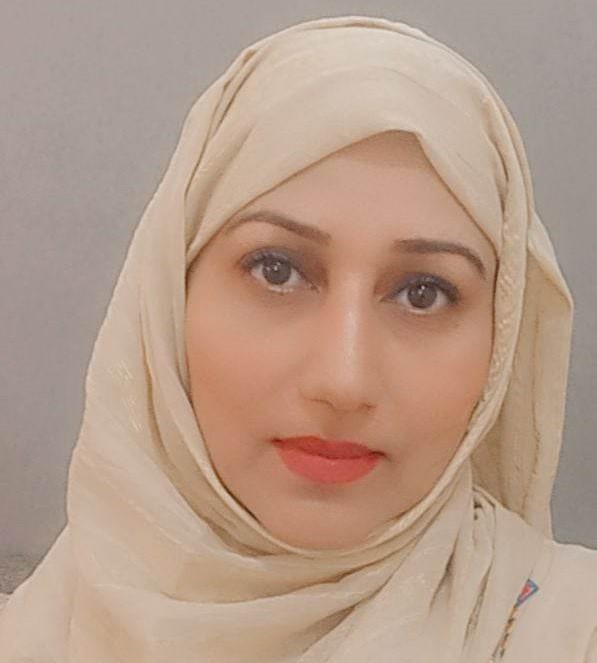
Author of a poetry collection ‘Anjaan Kaa’inat Jee’ari Aa’ (The Universe is Still Alive), Saabhiyan Sangi says she doesn’t want to be dubbed as Feminist. “If I write in favor of women, it doesn’t mean I am against the men.”
By Nasir Aijaz
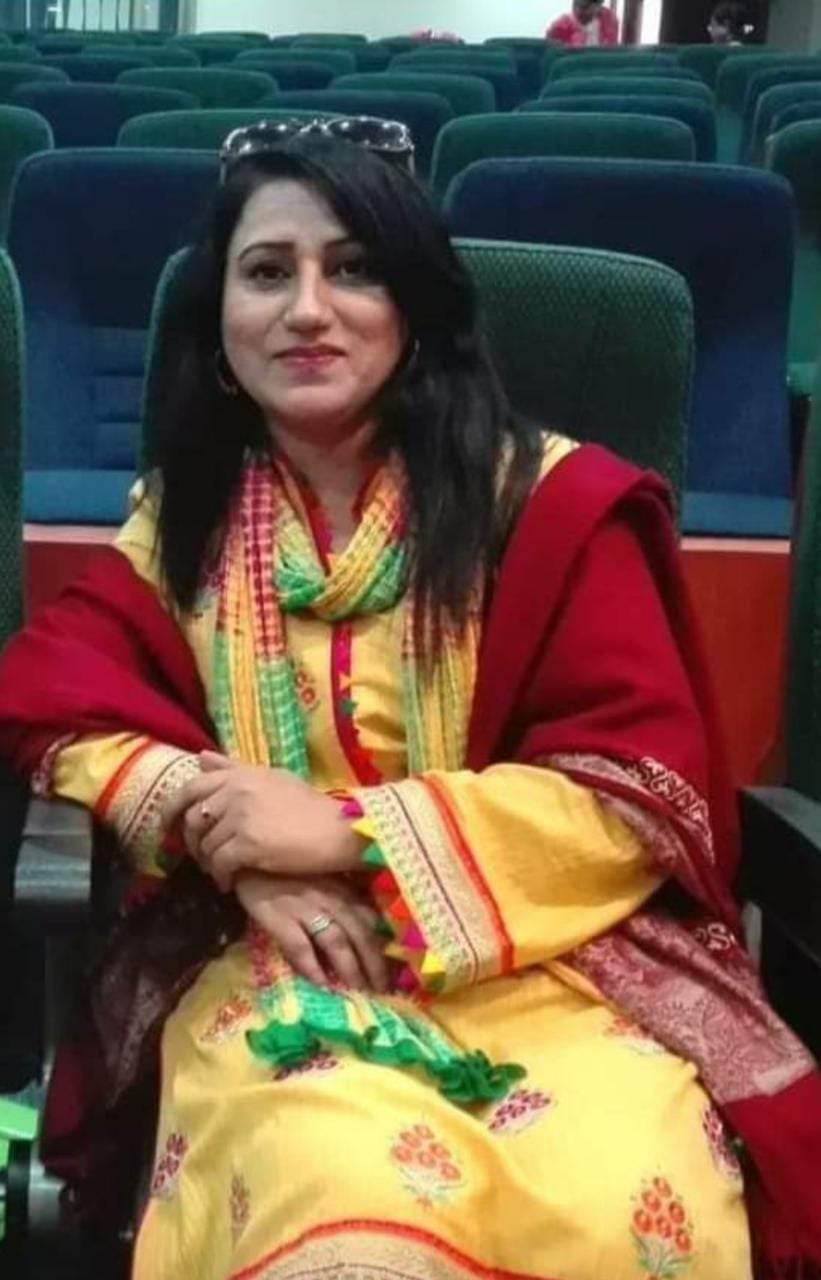 Prof. Sajida Parveen Sangi, (Pen Name: Saabhiyan Sangi) is a poet, prose-writer, author, researcher and educationist serving as Associate Professor at Government Degree Girls College, Greenbelt, Mehmoodabad Karachi. She is serving in College Education Department Sindh since 1995. Prior to joining the College Education Department as lecturer in 2002, she served as a High School Teacher from 1995 to 2002. Born to Khuda Bux Sangi in Naudero, district Larkano, Saabhiyan Sangi currently lives in Karachi. She has master’s degree in Sindhi.
Prof. Sajida Parveen Sangi, (Pen Name: Saabhiyan Sangi) is a poet, prose-writer, author, researcher and educationist serving as Associate Professor at Government Degree Girls College, Greenbelt, Mehmoodabad Karachi. She is serving in College Education Department Sindh since 1995. Prior to joining the College Education Department as lecturer in 2002, she served as a High School Teacher from 1995 to 2002. Born to Khuda Bux Sangi in Naudero, district Larkano, Saabhiyan Sangi currently lives in Karachi. She has master’s degree in Sindhi.
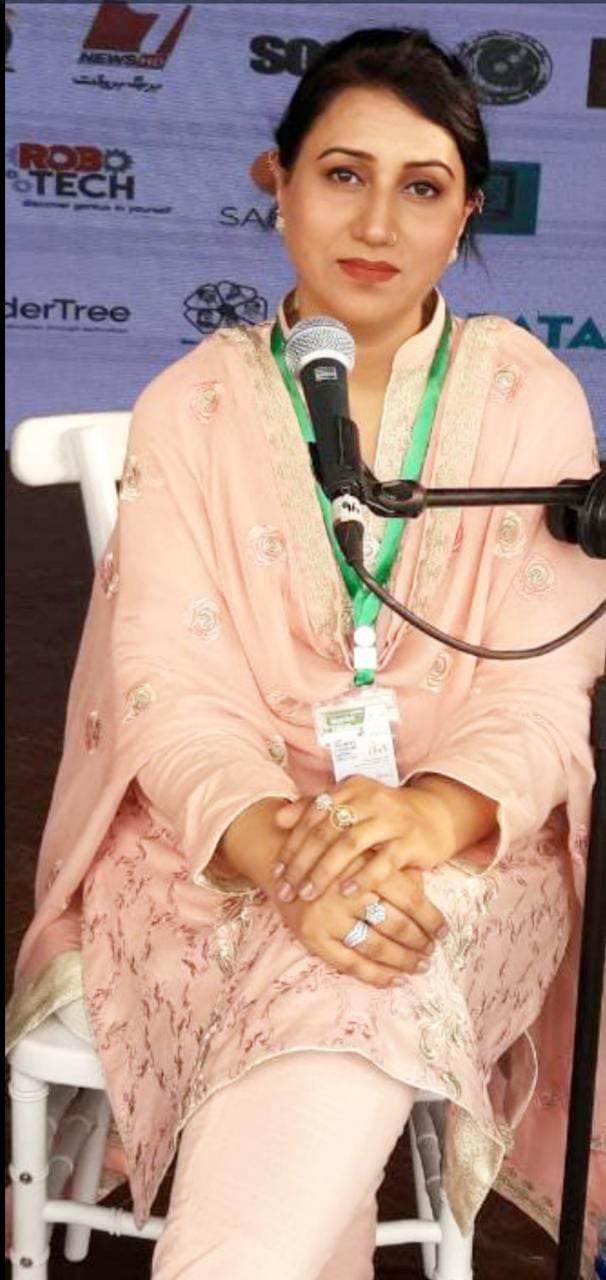 She is committed to writing poetry and prose in Sindhi and Urdu languages since 1988, and has authored a book in Sindhi language titled: ‘Anjaan Kaa’inat Jee’ari Aa’ (The Universe is Still Alive) consisting of various genres of poetry, published and well-received in 2007. Her two poetry books in Sindhi and Urdu languages are in the process of compilation. Her poetry is appreciated and endorsed by the literary circles.
She is committed to writing poetry and prose in Sindhi and Urdu languages since 1988, and has authored a book in Sindhi language titled: ‘Anjaan Kaa’inat Jee’ari Aa’ (The Universe is Still Alive) consisting of various genres of poetry, published and well-received in 2007. Her two poetry books in Sindhi and Urdu languages are in the process of compilation. Her poetry is appreciated and endorsed by the literary circles.
Saabhiyan Sangi regularly participates in literary radio and TV programs, especially the Mushaira’s and talk shows. She has also participated in a number of literary conferences, seminars, book launches, literature festivals and discussions as speaker and moderator.
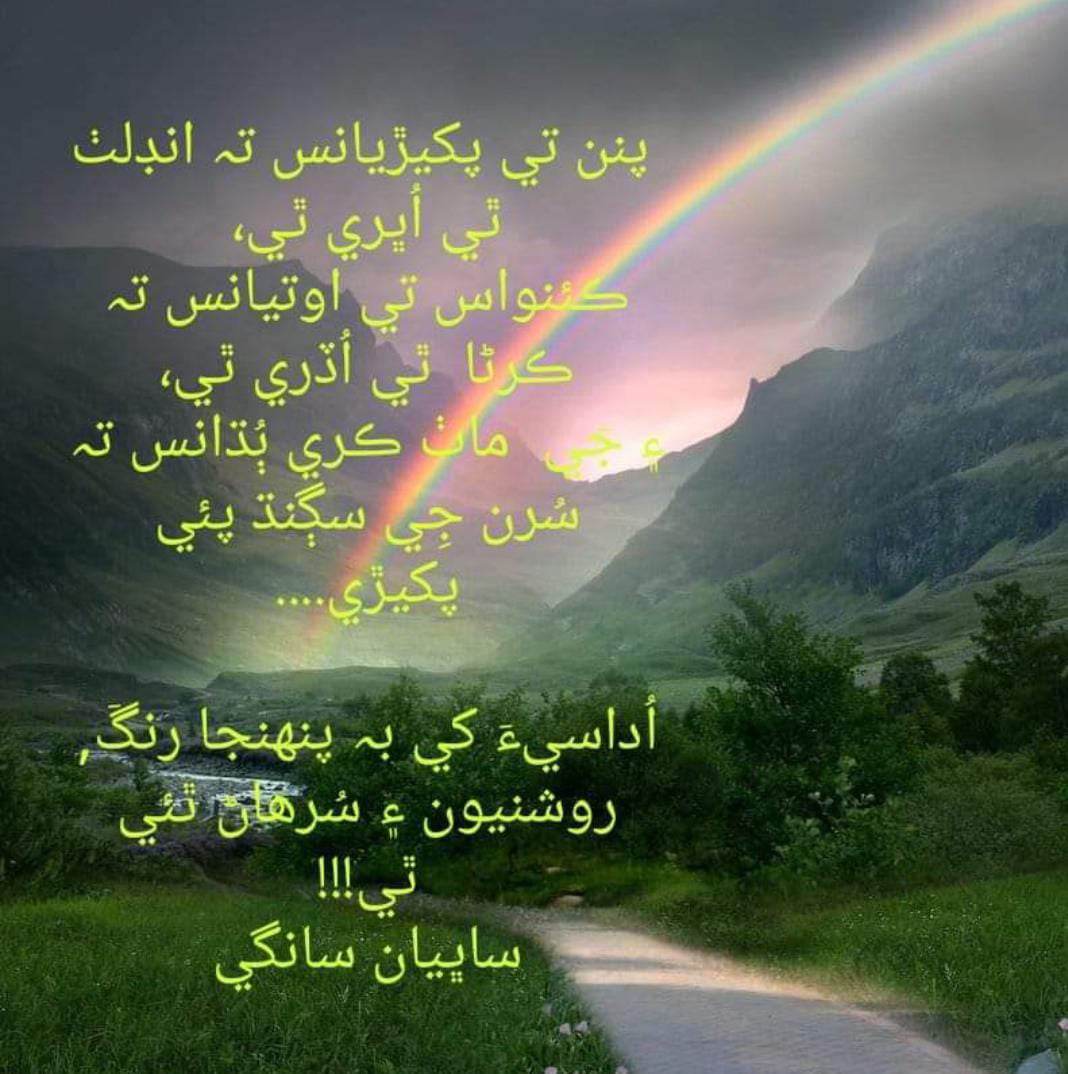 She is a creative and imaginative poet and writer using vivid language that often has an economical or condensed use of words chosen for their sound and meaning. She provokes thought with texture and tone of her poems.
She is a creative and imaginative poet and writer using vivid language that often has an economical or condensed use of words chosen for their sound and meaning. She provokes thought with texture and tone of her poems.
Saabhiyan Sangi recently shared her views on poetry and the journey as a poet.
Avoiding the Fame
It happens rarely that the poets do not like fame. In the history of English literature we can find poet John Clare, (1793-1864) who laments fame for its own sake. On the contrary, John Keats, who died of tuberculosis aged just 25, dreamt of literary fame and immortality. When he died, he feared that his name would not last.
Like the English poet John Clare, poetess Saabhiyan Sangi had no liking for fame when she started writing poetry. But the reason behind it was something different. “I kept myself in low profile for fear of any criticism and disliking,” she says.
“I had been hiding myself on my own.”
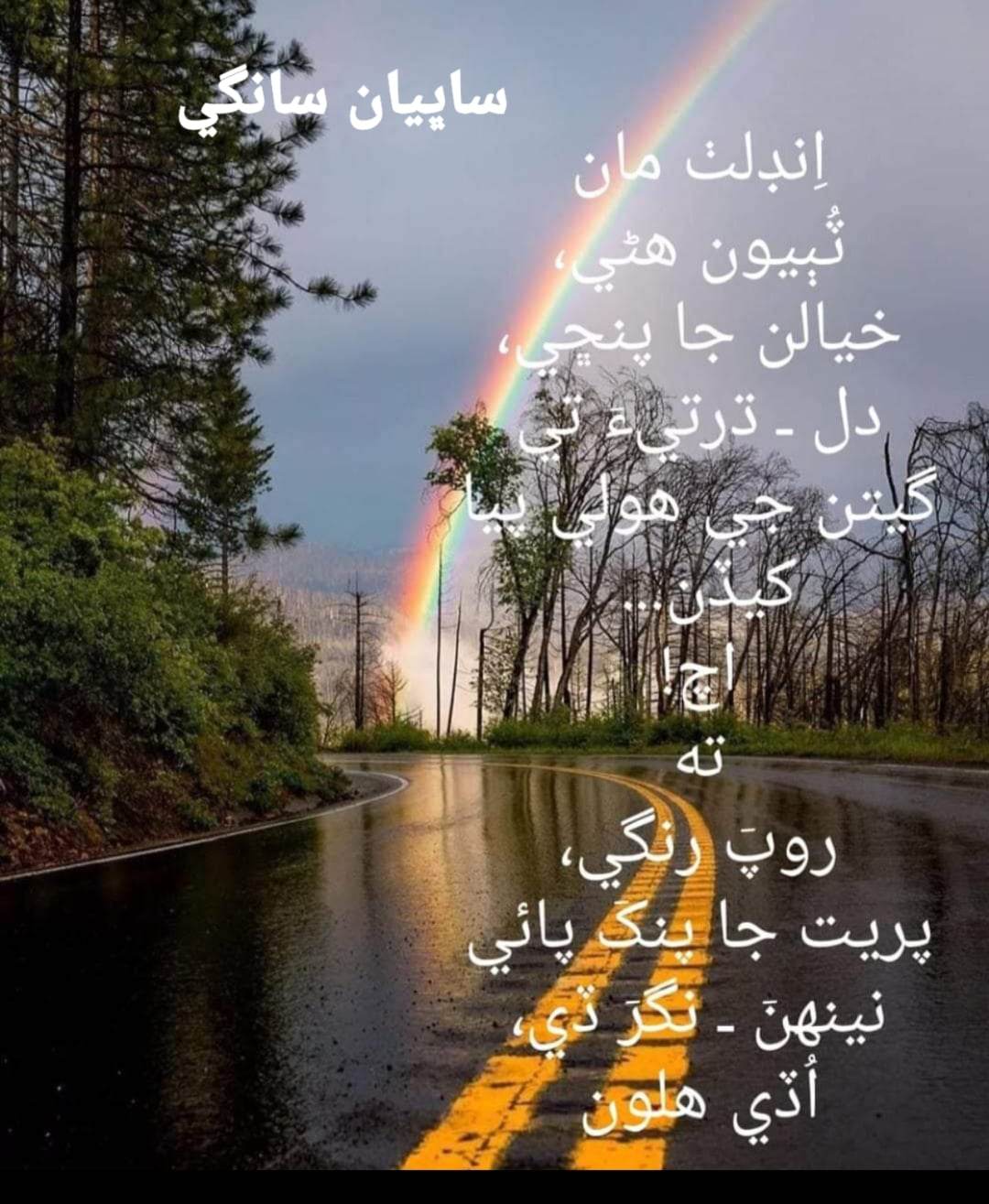 Even when she was asked to speak and respond to certain questions put to her, Saabhiyan said, “I feel confused and may be my answers too would be confusing like me.”
Even when she was asked to speak and respond to certain questions put to her, Saabhiyan said, “I feel confused and may be my answers too would be confusing like me.”
“But I don’t want to leave an impression of a confused or chaotic personality,” she said.
Although, her poetry was much praised by great poets such as Shaikh Ayaz, Agha Saleem and others, she said with utter humbleness, “Yes, I have been writing poetry since long, still I don’t know I am really a poet.”
“I don’t make tall claims about myself.”
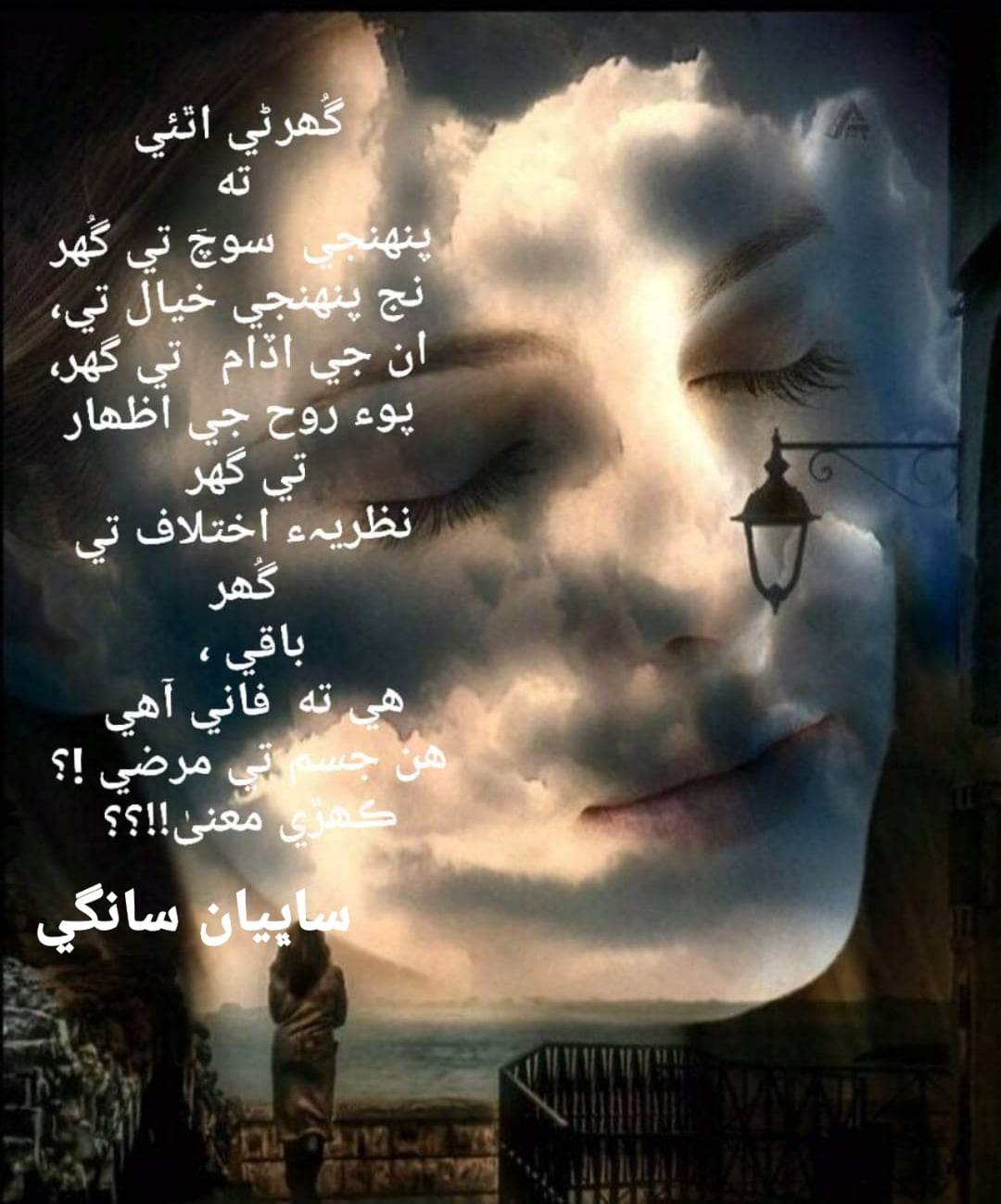 When I persuaded to frankly talk about her prose and poetry, and the attitude of the society towards her etc. She said, “Ok, but this is not my interview. I am just sharing my views with you.”
When I persuaded to frankly talk about her prose and poetry, and the attitude of the society towards her etc. She said, “Ok, but this is not my interview. I am just sharing my views with you.”
“It feels as if I have broken my silence after several centuries.”
Poetess of Romance and Feelings
When asked how she would categorize the nature of her poetry, Saabhiyan said, “It’s perhaps of feelings, emotions and romance.”
“But whatever I do write, it doesn’t necessarily relate to my person,” she said and referred to certain remarks when she posted a poem on Facebook. ‘What happened? Is everything fine in your life?’ was the remark she received.
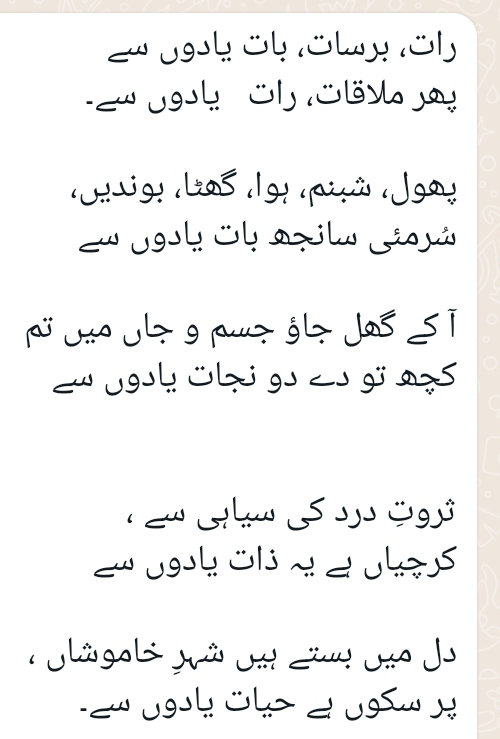
“It irritates me when the feelings, emotions, pain and sorrows expressed in poetry are linked to my person,” she told.
“What I write in my poetry or prose, doesn’t mean it’s a story related to my life. A poet observes the world, he or she lives in, and depicts in poetry or prose the stories of joys, romance, pain and sorrows of different characters he encounters. So, one day I posted a brief piece of prose in response to such remarks – ‘Every piece of my prose contains a story. How many stories would you correlate to me?”
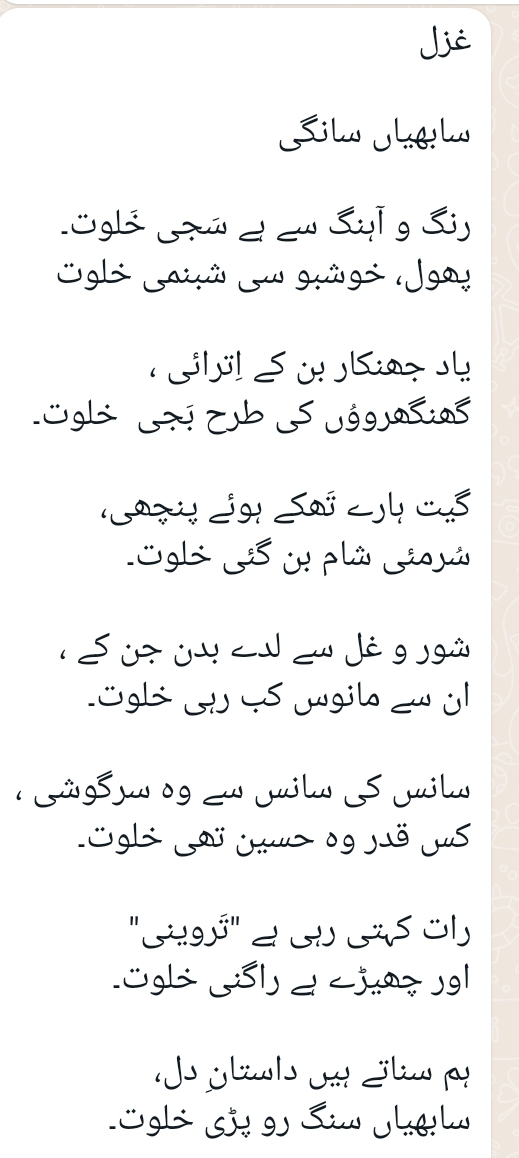 “Except such incidents, the attitude of the society towards me had been normal and encouraging,” Saabhiyan shared. “I didn’t face any issue as my family too had been and still is very supportive to me.”
“Except such incidents, the attitude of the society towards me had been normal and encouraging,” Saabhiyan shared. “I didn’t face any issue as my family too had been and still is very supportive to me.”
Poets who influenced her
I had been very much impressed by the poetry of Shaikh Ayaz, Ustad Bukhari, Imdad Hussaini, Shamsheer Haidery and some other poets.
Study of Foreign Literature
I have studied foreign literature and poetry but may be not to the extent to mention. I used to read translations since childhood – these include novels, short stories, dramas and poetry. I have also been reading resistance and revolutionary literature of Vietnam, China, Russia, and especially that of Palestine. But all it was at my early age.
I also read the Oriana Fallaci, Rajneesh Osho, Dostoevsky, Shakespeare, Mahmood Darwesh, Rasul Hamzatov, Tagore and Gulzar etc. but I think my study remains incomplete.
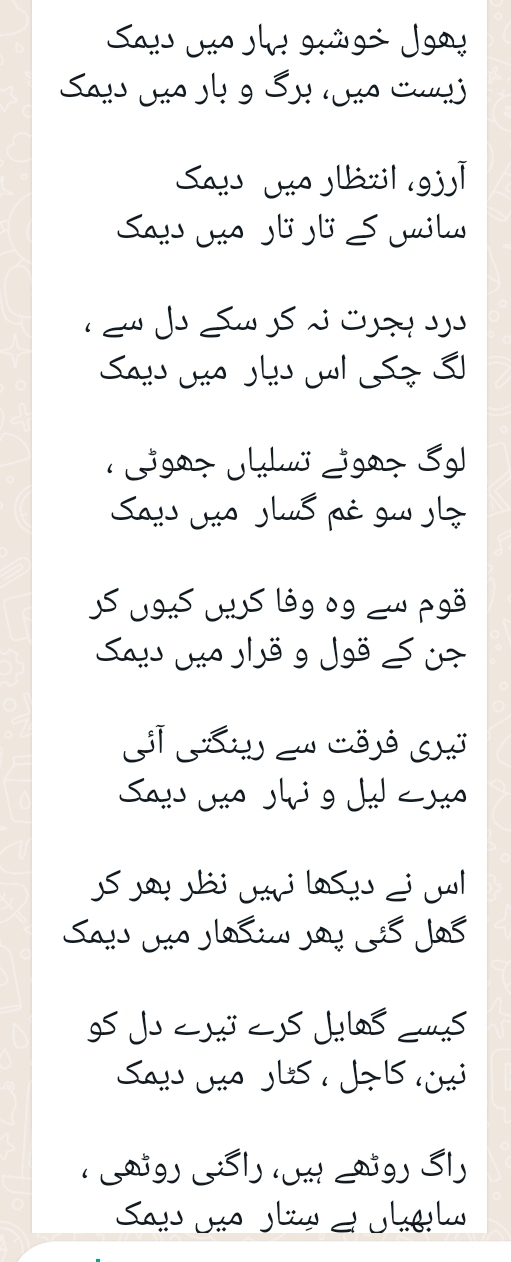 How to join global ranks
How to join global ranks
Naturally, it requires translation of Sindhi poetry and prose into English language. I would say, not only English, but also in Urdu and other languages so that our literature could be introduced to the world.
I have observed nominal presence of Sindhi literature as compared to Urdu and English literature at Karachi Literature Festival held yearly. We should ensure due presence of Sindhi literature at these literary fairs.
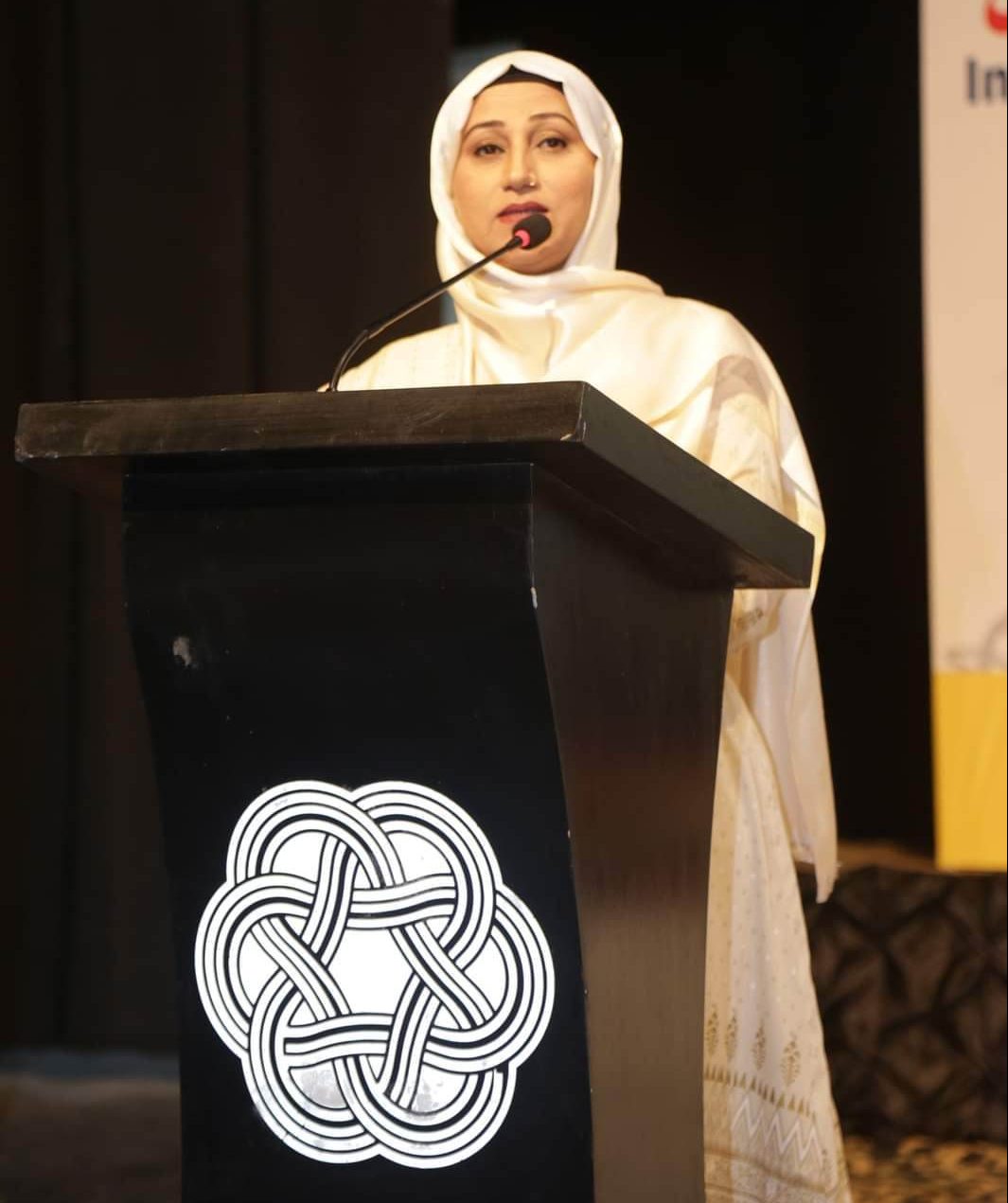 Journey as poet and writer
Journey as poet and writer
I have been published in several newspapers and magazines, but I would like to mention ‘Sojhro’, a Sindhi magazine published by late Taj Baloch. I wrote regular literary columns for that magazine, entitled ‘Saabhiyan Jo Safar’. Many readers still remember that literary writings.
Before ‘Sojhro’ magazine, I also got proper space for my literary columns ‘Sitoon Sarjiyal Shochun Ma’n’ in ‘Keenjhar’, another Sindhi magazine.
My prose writing was very much piercing.
I never wanted to be dubbed as ‘Feminist’, and therefore I categorically stated that writing in favor of women doesn’t mean that I am against the men.
______________
Nasir Aijaz is a senior journalist based in Karachi. He is author of nine books and hundreds of articles on language, literature and history. He can be accessed at nasir.akhund1954@gmail.com
[…] from Naudero, Larkana district of Sindh, Prof. Sajida Parveen Sangi, (Pen Name: Saabhiyan Sangi) is a poet, prose-writer and educationist serving as Associate Professor at a Government Degree […]